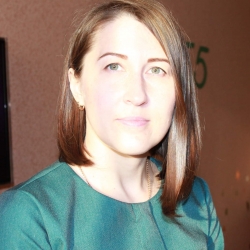13.10.2020
Класс - 9 «б»
Тема урока: «Are celebrations important»? «Важно ли праздновать»?
Цели урока:
учебная — формирование коммуникативных умений и навыков по теме
развивающая — развитие способности к догадке (по словообразовательным элементам, по контексту), к сравнению и сопоставлению речевых единиц, осуществлять репродуктивные и продуктивные речевые действия
воспитательная — формирование положительного отношения к фактам иностранной культуры
коррекционно-развивающая: развивать, совершенствовать ориентировочно-поисковые движения взора
Форма работы - фронтальная в сочетании с самостоятельной деятельностью и работой в паре. При проведении урока учитываются возрастные и психологические особенности подросткового возраста.
Ход урока
1. Оргмомент, приветствие, рапорт дежурного: Good morning children! How are you? Say me please, Who is on duty today? What is the date today? What day is it today? Who is absent?
2. Фонетическая зарядка
To begin with, let’s do some phonetic exercises. Look at the board and repeat after me:
[i:] – Easter, treat, believe, agree, queen.
[ı] – Britain, hill, trick, think, Whit, witches.
[ǝ:]=[ɜ:] birth(day), girl, certain, person, burn, turn.
[æ] – charity, Halloween, Valentine, fancy, bank.
[ɑ:] – part, garden, carnival, are, father.
3. Определение темы урока
1. What’s the Russian for Easter, Halloween, Valentine, and Whit?
2. So, what’s the topic of our lesson?
3. That’s right!
4. And our goal is to revise everything and remember the Holidays’ names and main British traditions.
4. Речевая зарядка
Answer my questions now!
What holiday do people all over the world celebrate in January?
When do British children play tricks and wear the costumes of ghosts and witches?
Where can people admire beautiful flowers and romantic Gardens?
Is it true that the British make big bonfires and set fireworks at Guy Fawkes Night?
What do you think is the most popular religious holiday in the UK?
That’s right! Let’s speak about Christmas and discuss the traditions while checking your homework.
5. Поверка домашнего задания А.В. р.25, ех. 2
Follow, popular, December, families,
lights, get presents, Christmas tree.
НOMEWORK. Read the text about Christmas. Fill in the blanks using the words from the box:
Christmas is the most _____________ British holiday. It is celebrated on the 25th of ___________. The British _____________ the tradition of buying gifts and decorating a ____________ ________. They also decorate their houses with ________and mistletoe and holly branches. People get together with their___________and have a big Christmas dinner. Children look forward to __________ __________ from Santa Clause.
Answer the questions:
And do you know who does it Russia? What’s his name?
6. Аудирование текста
Open your books at page 53. Find the exercise 2.
We are going to listen to small texts about the British holidays and match them with the words and word combinations meaning different occasions and traditions.
Before listening read the given words in left column and the holidays’ names in the right column.
You have 1 minute.
You will listen to the texts two times.
And then match the word.
Exchange your copybooks and check the work of your partner. Consult the screen where you can find the criteria.
Give the marks.
7. Физминутка
8. Грамматика «Разделительные». (The Present, Past, Future Simple Tenses)
As you remember we studied Tag-questions.
1. What’s the Russian for a tag-question?
Right you are! It is …
2. And when should we use them? Когда, для чего мы используем разделительный вопрос?
Правильно, разделительные вопросы используются, когда мы хотим уточнить, правильно ли то, о чём мы говорим, т.е. ожидаем подтверждения своего высказывания.
3. How is it built and translated into Russian?
There are 2 parts: the statement and the tag.
How to build the tags?
Из чего же мы строим этот «хвостик» ведь в английском языке мы не можем обойтись одним выражением?
5. Remember, if the statement is positive, the tag should be negative.
And if the statement is negative, the tag must be positive.
9. Домашнее задание
Домашнее задание: подготовить диалог.
10. Подведение итогов урока. Рефлексия. Выставление оценок


























